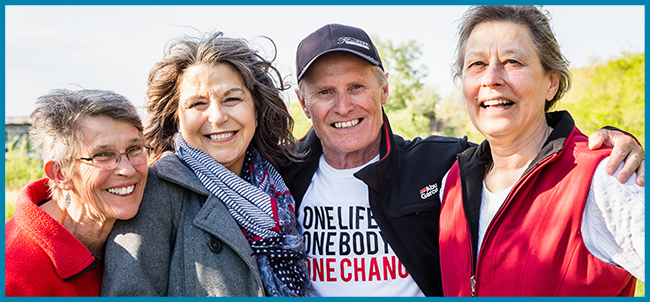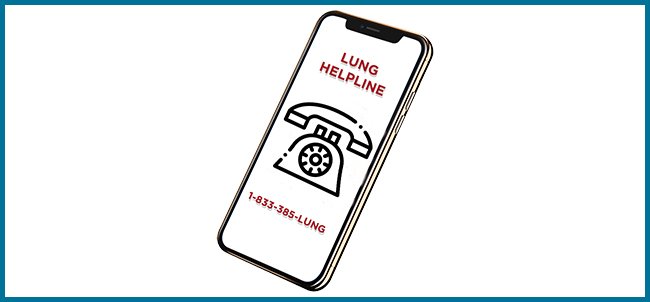Quitting Smoking
Many people like you have quit smoking. You can too. Counseling, medications, and other supports can help you quit. The most effective way to quit is to have a plan and proper support. Pick a quit date, talk to a smoking cessation counselor and see if any nicotine replacement therapy or medications will help you.
Pick a quit day
Choose a date within the next two to three weeks to quit. Don't wait for the perfect day – just pick a day and work with it. Add it to your calendar.
Choose two or more proven quit-smoking methods
There are many proven ways to quit smoking. To boost your chances of quitting, pick what seems right for you:
- Join a support group.
- Get individual counseling in person or by phone. There are free quit lines across Canada.
- Take nicotine replacement therapy (NRT). The nicotine patch, gum, lozenge or inhaler.
- Ask your doctor about prescription medications to help to quit smoking.
- If you slip up, don’t give up.
- Ask for support from your family and friends.
- Going “cold turkey” – quitting spontaneously on your own – also works well for some people. Many people who have quit smoking for good say they quit cold turkey. If you think going cold turkey could work for you, try it.
Quit buddies support you through tough times
A quit buddy is someone you can depend on when you're craving a smoke, feeling down, or just need to vent. A quit buddy can be anyone – a family member, friend, or co-worker. The person doesn't have to be someone who used to smoke, since all that really matters is that he/she will be there for you to provide regular and non-judgmental support.
Consider joining the Sask Quits support group. This group includes hundreds of people going through the same quit journey.
Quitting smoking is hard but worth it
| Within 8 hours of quitting | your carbon monoxide level drops in your body and the oxygen level in your blood increases to normal. |
| Within 48 hours | your chances of having a heart attack start to go down and your sense of smell and taste begin to improve. |
| Within 72 hours | your bronchial tubes relax making breathing easier and lung capacity increases. |
| Within 2 weeks to 3 months | your circulation improves and lung functioning increases up to 30 percent. |
| Within 6 months | your coughing, sinus congestion, tiredness, and shortness of breath improve. |
| Within 1 year | your risk of smoking-related heart attack is cut in half. |
| Within 10 years | your risk of dying from lung cancer is cut in half. |
| Within 15 years | your risk of dying from a heart attack is equal to a person who never smoked. |
If you have already quit smoking – congratulations! You have done the best thing possible to improve your health and slow the progression of your lung disease.
If you smoke, today is a great day to quit smoking. Quitting prevents additional lung damage and makes it less likely that you will get chest infections, coughs and mucus build-up.
You are not alone during your quit journey.
People have been most successful in quitting when they combine counselling/support services along with nicotine replacement therapies or other medications. We suggest developing a quit plan with the help of your health care provider to find the best options for you. Certain medications may not be recommended for you (E.g., interactions with other medication etc.). Medications can have side effects as well. For this reason, it is best to work with your health care provider.
Medical treatments to help you quit smoking
- Nicotine replacement therapy (NRTs), (nicotine patch, gum or lozenges, nasal spray and mouth spray). The goal of NRTs is to replace the nicotine you get from smoking without the harmful health effects. Nicotine is the addictive component in tobacco. You can get these without a prescription at most pharmacies.
- Bupropion hydrochloride and varenicline tartrate: These are prescription medication in a pill form that work on the “addiction centre” in the brain, reducing your craving to smoke.
E-cigarettes (vapes) are not proven to be a safe and effective way to quit
Health Canada has stated that vaping can increase your exposure to chemicals that could harm your health (E.g. cause lung damage). People who use e-cigarettes inhale unknown and harmful substances. We encourage people who are trying to quit smoking to use quit methods that are known to be safe, effective and approved by Health Canada.
Resources to help you quit smoking
- Lung Sask Helpline 1-833-385-LUNG (5864)
- 2024 Saskatchewan Quits Challenge
- Your family doctor or pharmacist
- The Lung Saskatchewan Smoking Cessation Support Group (Saskatchewan Quits)
- Ready. Set. Quit. A free downloadable guide to assist you with your journey to kit smoking.
- A local quit specialist
- Smokers Helpline





